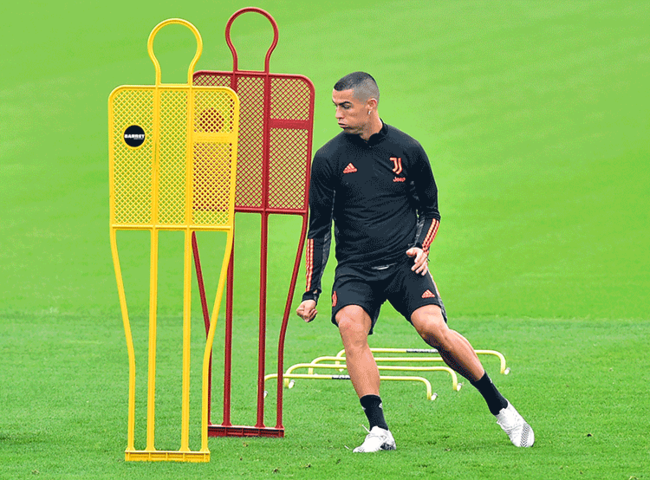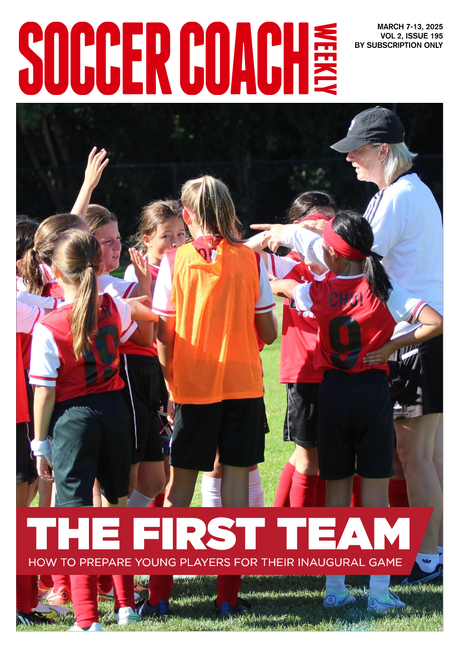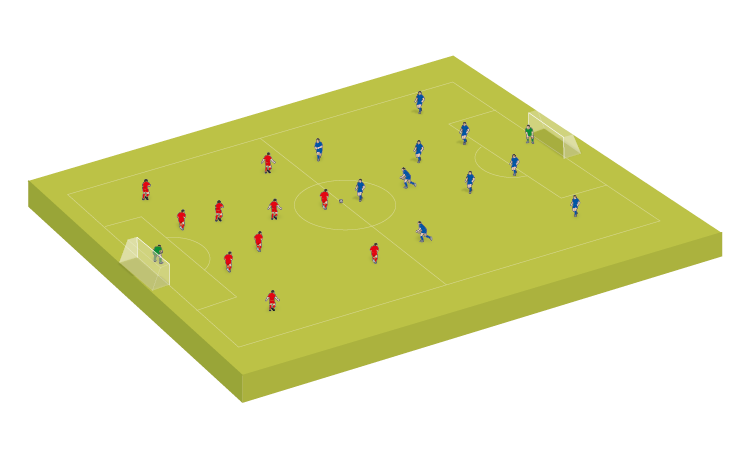Can you use zonal marking at grassroots level?
Simple answer is “Yes”, particularly if your players regularly struggle to hang on to the attackers they are marking, or if they fail to organise themselves each time they face a corner or free kick. Given a set position, your players will grasp what they have to do and respond well to their part...
That’s because, when using zonal marking, defending becomes a collective responsibility for the team rather than an individual one. Some go as far as to argue that the success or failure of the system is dependent on a coach’s ability to explain the concept to his players.
Rafa Benitez and zonal marking
According to Rafa Benitez the former Real Madrid, Liverpool, Chelsea and Newcastle manager: "When you talk about man-to-man (marking), it’s very easy for the manager to say it’s your responsibility, and that’s it.
"But when you talk about zonal marking, in reality you as a manager take responsibility. You have to explain (to your players) what to do and how they will do it... But obviously, if you do it well, it’s a good system for defending."
Each player has a role
The point of zonal marking is to protect the space around the goal by assigning each of your players a role that they can adopt without thinking each time the situation requires it. In full zonal marking you have two players on the posts, three men along the six yard line with another three men in front of them and one further ahead around the edge of the D.
One man remains up the pitch as the "out ball". So they are not colliding, the zone players only move forwards and towards the space around them in an attempt to go for the ball. The keeper is also much freer to come and claim it. Depending on the trajectory of the ball, the players attack the space around them if the ball is close enough to warrant action.
There are variants of zonal marking, notably a hybrid where you assign someone (your biggest and best header of the ball) to mark the opposition’s aerial danger man, but obviously, you need to know the opposition well to identify such a threat.
If you’re thinking of employing zonal marking, remind your players it takes time and practice to work the system to perfection and don’t be tempted to give up the first time it goes wrong.
Attack Your Space
Let’s stick together
Newsletter Sign Up
Coaches Testimonials

Gerald Kearney, Downtown Las Vegas Soccer Club

Paul Butler, Florida, USA

Rick Shields, Springboro, USA

Tony Green, Pierrefonds Titans, Quebec, Canada
Subscribe Today
Discover the simple way to become a more effective, more successful soccer coach
In a recent survey 89% of subscribers said Soccer Coach Weekly makes them more confident, 91% said Soccer Coach Weekly makes them a more effective coach and 93% said Soccer Coach Weekly makes them more inspired.
*includes 3 coaching manuals
Get Weekly Inspiration
All the latest techniques and approaches
Soccer Coach Weekly offers proven and easy to use soccer drills, coaching sessions, practice plans, small-sided games, warm-ups, training tips and advice.
We've been at the cutting edge of soccer coaching since we launched in 2007, creating resources for the grassroots youth coach, following best practice from around the world and insights from the professional game.







